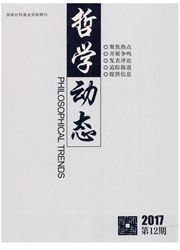

 中文摘要:
中文摘要:
康德将道德规范纳入理论批判视野,构建了独具特色的伦理体系。确定行为的"应该"与道德行为的法则是康德道德哲学研究的主题。康德也因此被视为规范伦理的典型代表。然而,无论是道德法则的产生,还是道德法则的运用都需要人的品格为基础。在此意义上,康德道德理论实现了关注人内在品德的德性伦理与关注人外在行为的规范伦理的结合,为人的道德信念与道德能力留下了生成空间。从规范与德性角度,对康德理论进行重新解读,对伦理道德的理解及道德文化建设具有重要意义。
 英文摘要:
英文摘要:
Kant brought moral law into the theory of criticism, constructed the unique system of normative ethics.To determine " should" of the behavior and " law" of the moral is the subject of Kant' s moral philosophy.Kant is considered as the typical representative of normative ethics.Whether the production of moral law, or the use of the moral law need the character of people as base.In this sense, Kant' s moral theory not only ensured the universality of Kant' s moral law, but also achieved the combination of virtue ethics that focused on inner moral character, and normative ethics that payed close attention to external behavior, and left generated space for moral belief and moral ability.From the view of norms and moral, a new interpretation of Kant' s theory, is of great significance to the understanding of virtue ethics and construction of moral culture.
 同期刊论文项目
同期刊论文项目
 同项目期刊论文
同项目期刊论文
 期刊信息
期刊信息
